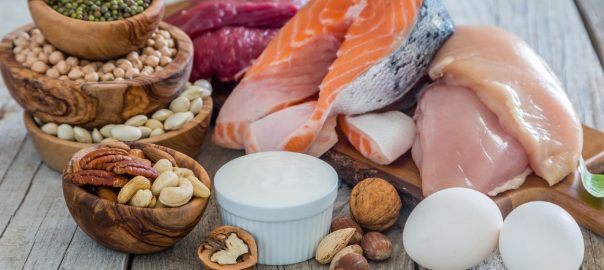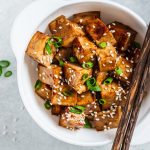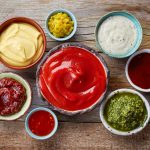
Eat Healthier With Quality Proteins
How to Choose High Quality Protein Sources
Protein is a necessary part of any diet. It keeps you feeling full and it can help you build more muscle mass than carbs or fat alone. However, the quality of the protein you’re buying matters.
In today’s world, common practices in the meat industry are less than perfect, so it can be hard to find good quality meat at your local supermarket. This is why it is important to be informed about the quality of the meat you consume. To help with this, we put together this guide that will help you shop for the best quality meat next time you are at the grocery store.
Beef and Dairy
When it comes to buying beef, you always want to ensure that your cuts are free from added hormones, antibiotics and nitrates (a type of preservative). Grass-fed beef also has many benefits that you will not find in grain fed beef, such as:
- Higher levels (up to 6x more!) of omega-3s
- Higher in antioxidants and essential vitamins
- Higher in a healthy fat called conjugated linoleic acid (CLA) which can reduce risk of heart disease and cancer
- Reduced exposure to bacteria such as E. coli
- Does not require the use of chemicals and fertilizers (especially if Organic)
- Environmentally friendly!
Think about it this way: grass naturally contains more nutrients than grains (especially the low-quality crops that are fed to animals because they are not marketable to humans). If an animal consumes more nutrients, it will be healthier, and these nutrients will spread throughout its body meat and passed onto those who consume it later.
Nick’s Sticks Grass-Fed Beef Sticks are a clean, high-protein snack! Made with 100% grass-fed beef, these jerky snacks are also preserved using only natural ingredients including Redmond sea salt and celery juice.
Be aware that higher quality beef will come with a higher price tag, but it is worth it. Try going to a local butcher or grocery store that specializes in organic, farm-raised meats for your best selection.
When buying dairy, it is best to avoid anything advertised as “low fat.” Dairy is a natural source of fats, so if the fat has been removed, this means that the product has undergone unnecessary processing that can strip other nutrients away. Also make sure to check the sugar content on the nutrition labels and avoid anything with added sugars. Cheeses with the highest protein content include ricotta, cottage cheese and parmesan.
Try KZ Clean Eating’s Parmesan Crispbreads made with real cheese (and keto-friendly)! We also love Ivanhoe Nothing But Cheese Snacks, high in protein and made with 100% Canadian cheese.
Goat cheese is an alternative to cow’s cheese worth considering, despite its lower protein content, for a number of reasons. Not only is it higher in vitamins and minerals and easier to digest, but goats also tend to be treated more humanely and they are easier on the environment due to their size alone. Smaller animals in general are better to consume, because they naturally contain less hormones, it is easier to feed them nutrient-rich diets (since they consume less overall), and they absorb less toxins from the environment or bad farming practices.
Poultry and Eggs
In general, poultry is heart-healthy animal protein. That said, it is usually leaner than beef or pork so if you follow a low carb high fat diet, be sure to add fats in other areas of your diet.
Organic is always the healthier option, not only because you will be consuming less toxins, but also because organic meat tends to have more heart-healthy omega-3 fatty acids and a lower risk of food poisoning from bacteria such as salmonella.
Feeding chickens additional hormones has been illegal since the 1950s, so “hormone-free” labelling is just a marketing ploy. Nonetheless, chickens do produce their own natural hormones (just like us), but these are substantially less than larger animals and relatively safer to consume.
When it comes to eggs, there are tons of options to choose from. They are a relatively inexpensive and nutrient-dense form of protein, also providing you with important vitamins and amino acids that you can’t find in most other food sources. But, some eggs can be too cheap, and you should avoid buying these. Cheap eggs are the result of inexpensive and arguably abusive farming practices. You are better off paying a few extra dollars not only to discourage these types of farming practices, but also to get more nutrients out of your eggs. Look for these indicators of high-quality eggs:
- Organic
- Free range
- Farm eggs
- Pasture-raised
- Omega-3/DHA enriched
Here are some other signs of a healthy chicken egg:
- Varying colours of eggshells that are not cracked or powdery in appearance (this could indicate mold)
- A large orange-coloured yolk
- Thick, clean egg whites
If you have access to a local farmer that sells eggs, ask them about the chickens’ diet. A healthy diet for chickens should consist of fruits, green plants, worms and insects. Grain-fed chickens can produce smaller, more yellow-coloured yolks that contain less nutrients.
Pork
There is some controversy surrounding the health benefits of pork. This is mainly because we are accustomed to highly processed, unhealthy forms of pork such as bacon, sausages, hot dogs, etc. These forms tend to be plagued with artificial preservatives, unhealthy trans and saturated fats and honestly, who knows what else! But lean pork meat from a local butcher or reputable grocery store is a good source of protein, vitamins and minerals.
Like any other meat, the way the animals are raised is what matters. Pasture-raised pigs have access to natural forage and plenty of sunshine that makes their meat richer in vitamins and minerals. Did you know that pigs are also highly emotional animals? Pigs raised humanely are happier and better-tempered, which can affect the quality and taste of their meat. Many studies have shown that meat quality suffers when animals are placed in high-stress environments such as crowded barns with a lack of fresh air and excessive breeding practices.
Fish and Seafood
Fish and seafood are excellent sources of omega-3 fatty acids. Although they are lower in protein than land animals, they still provide enough to meet your daily recommended intake. Some of the healthiest fish to eat are:
- Wild-caught Salmon or Arctic Char (similar but milder taste)
- Oysters
- Wild-caught Sardines
- Cod
- Rainbow Trout
- Tuna
Be sure to limit your intake of fish, especially larger species such as tuna, because of potentially high mercury levels. Not only this, but limiting the amount of fish you eat can help discourage overfishing which puts a huge strain on our aquatic ecosystems. When buying fish, it is always best to look for “sustainably sourced” labels.
Vegetarian Protein
If all of these meat stipulations are confusing or too heavy on your wallet – consider vegetarian sources of protein instead! There are several great options out there that are not only cheaper, but also more nutritious and less likely to have undergone inhumane or unnecessary processing. Some great plant-based protein sources you can choose from include tofu, tempeh, nutritional yeast, beans, chickpeas, lentils, nuts and seeds.
The great thing about these plant-based sources is that they not only contain protein, but you will also get more fibre and nutrients per calorie. Fibre cannot be found in meat, but is an essential part of a healthy diet – so, why not kill two birds with one stone? The truth is, the average Western diet contains way too much protein and not enough fibre to begin with! Vegetarian proteins are also more sustainable because they require less water and do not contribute to greenhouse gas emissions. Did you know that cattle produce massive amounts of methane and carbon dioxide – whereas plants help filter out these toxins in the air and help us – and the planet – thrive. Try swapping out animal proteins for plant-based meals at least once a week to lessen your environmental impact! If everyone does it, it makes a huge difference.
The Low Carb Grocery carries a number of high-protein products made from plant-based ingredients. Check them out:
- Chickapea Pasta made with chickpeas and lentils
- Liviva High Protein Organic Noodles made with black beans, edamame or soybeans
- Beanitos Bean Chips
- Enlightened Roasted Bean Crisps
- GluteNull Keto Cherry Almond Granola made from a blend of nuts and seeds
- HoldTheCarbs Low Carb Granola
- KZ Clean Eating Keto-Friendly Breakfast Cereal
Stay Connected
If you liked this article, share it with your friends and family on Facebook or tag them on our Instagram page. We also love to stay connected with our Weekly Newsletters for updates on the latest products and special sales! Also, please leave us a Google Review with your Low Carb Grocery experiences!






